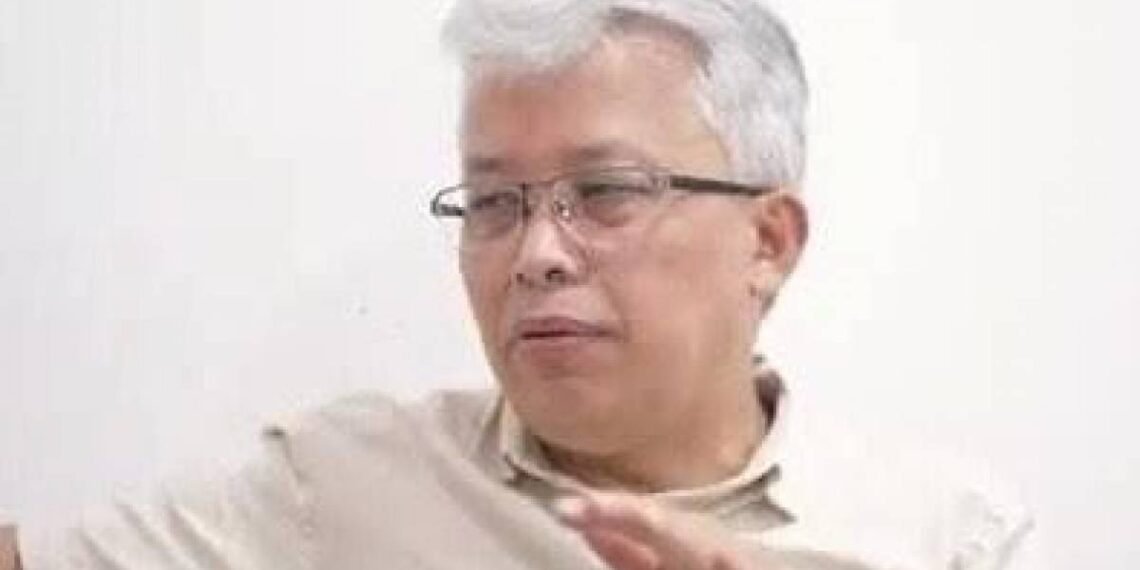Facing attacks from Kuki-Zo groups, Congress MP from Maninpur Inner constituency Bimol Akoijam asserted he represents all residents of Inner Manipur, not just a tribe or community.
BY PC Bureau
August 31, 2025: Congress MP from Inner Manipur, Bimol Akoijam, who has come under sharp criticism from sections of the Kuki-Zo community for his strong opposition to the People’s Union for Civil Liberties (PUCL) tribunal report on the Manipur violence, has issued a detailed clarification, asserting that his role as a parliamentarian transcends communal or tribal affiliations.
“As an elected MP in Lok Sabha, under the Constitution of the country, I do not represent Akoijam Sagei or Angom clan, let alone the Meitei community. I represent the people—the citizens—irrespective of caste, creed, tribe, community or religion—enlisted in the voter list of the Inner Manipur Parliamentary Constituency,” Akoijam said in a statement, emphasizing that his position was guided strictly by constitutional values.
The Congress leader accused his detractors of being influenced by what he termed the “virulent viruses” of communalism and tribalism, arguing that such thinking distorts the constitutional spirit of representation. “The Indian Constitution does not recognize communal representation. What it recognizes are affirmative action policies such as reservations for Scheduled Tribes (STs) and Scheduled Castes (SCs),” he added.
READ: PM Modi Meets Xi Jinping, Signals Stronger India-China Ties
Tracing the historical basis of representation in Manipur, Akoijam pointed out that the state’s Assembly reserved seats were determined by the 1961 census, when STs made up about 31 percent of the population. This translated into 19 reserved ST seats out of 60, with one seat reserved for SCs and the remaining 40 left open. “In these unreserved constituencies, anyone—be it Meitei, Kuki, Naga, Nepali, Sikh or Marwari—can contest and vote,” he clarified.
As an elected MP in Lok Sabha, under the Constitution of the country, I do not represent Akoijam Sagei or Angom tribe/clan, let alone the Meitei community. I represent the people, the citizens – irrespective of caste, creed, tribe, community or religion – enlisted in the voter…
— A. Bimol Akoijam (@Bimol_Akoijam) August 31, 2025
Illustrating with examples, the MP said a legislator from Churachandpur or Kangpokpi does not merely represent his or her tribe but all the voters in the constituency, including members of other communities. “Similarly, MLAs elected from Imphal seats like Thangmeiband or Uripok represent all their voters, not just Meiteis,” Akoijam argued.
Rejecting the notion that multiple Meitei MLAs automatically equate to “communal representation,” he reiterated that “elected members represent their electorates, not their sageies, clans or tribes.”
The Congress MP cautioned that attempts to reinterpret representation along communal lines were dangerous and unconstitutional. ““That’s the foundation, the letter and spirit of the Constitution. However, people who are afflicted by communalism and tribalism will think, feel and act against such Constitutional spirit and schemes by seeking to present this reality as communal representation. They not only preach and act against the Constitution, guided by their compulsive communalism and tribalism, they also preach, produce and pursue hatred and bloodshed in society and polity. All the democrats and the lovers of freedom and peace must be mindful and wary of such people, and defeat their nefarious communal agendas,” he warned.
READ: EXCLUSIVE: PM Modi May Visit Manipur on Sept 13; Police on High Alert, Leaves Cancelled
Akoijam’s remarks come amid growing tension between him and civil society groups aligned with the Kuki-Zo community, who accuse him of siding with majoritarian narratives. The MP, however, has maintained that his opposition to the PUCL report stems from constitutional reasoning, not communal leanings.














